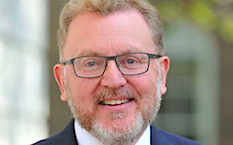Unemployment in Scotland fell by 14,000 in the July to September period — and is down 38,000 over the year — to stand currently at 129,000, according to the Office for National Statistics (ONS).
The Scottish unemployment rate is 4.7 % — just below the rate of 4.8% for the whole of the UK.
However, the ONS statistics also show that employment in Scotland fell by 25,000 over the three months to September 2016 — with the number of those in employment in Scotland now standing at 2,604,000.
The Scottish employment rate fell slightly over the quarter to 73.6%, just below the UK average of 74.5%.
The UK Government’s Secretary of State for Scotland David Mundell said: “It is good news that unemployment continues to fall in Scotland.
“But with Scotland’s employment rates now lagging behind the rate of the UK and economic inactivity on the rise, these figures should be a concern to the Scottish government.
“It is important they use their budget next month to set out how they plan to use the significant new tax and welfare powers they now have to support the Scottish economy.”
The Scottish Government’s Economy Secretary Keith Brown said: “Today’s labour market statistics again show that Scotland is outperforming the UK on unemployment and has the second highest employment rate of the four nations.
“Our female and youth employment rates are also higher than those for the UK as a whole.
“While these are hugely encouraging signs it is important that given the challenging economic conditions we face, we continue our efforts to support growth, to invest and to boost employment, with a £500 million package of financial support for private sector business investment as well as £100 million of accelerated capital spending in this financial year.
“It is clear that the result of the EU referendum has created uncertainty and undermined economic progress, which is why we are determined to pursue every avenue to secure Scotland’s continued place in the EU and the stability, jobs and investment that come from being part of the world’s biggest single market.”
